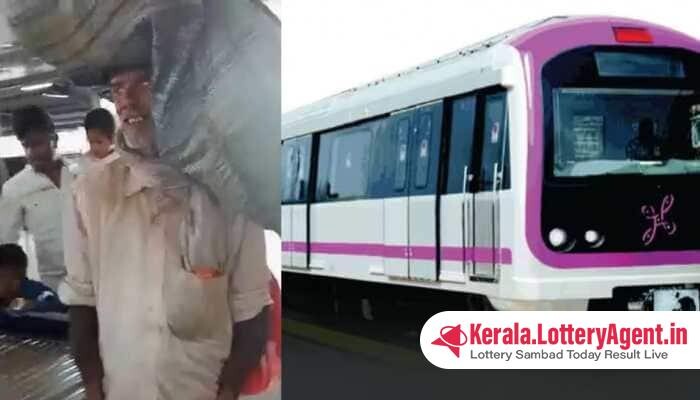
In a recent event that sparked a public outcry on social media, a farmer from Bengaluru experienced discrimination when he was turned away from boarding the Namma Metro. Metro officials have since terminated a security supervisor over the incident.
On the day of the incident, the farmer arrived at Rajajinagar metro station, dressed in a simple white shirt, with a bundle of clothes balanced on his head—an appearance that is not uncommon for individuals engaged in agricultural work. Despite holding a valid ticket, the farmer was stopped at the security checkpoint, becoming the subject of judgment solely based on his attire, which was deemed as ‘inappropriate’ by the security personnel. The incident gives rise to questions about the inclusivity and access to public transport in the bustling city of Bengaluru.
A video capturing the altercation has gained traction online, featuring the Hindi-speaking farmer at the security checkpoint and a commuter, Karthik C Airani, confronting the metro staff about their decision. Airani’s rigorous questioning highlighted the lack of any official dress code or rule that the farmer had broken, shedding light on the arbitrary nature of the hindrance placed by the security staff.
The Bangalore Metro Rail Corporation Limited (BMRCL) was quick to respond to the controversy that arose from the viral footage. In a public statement on social media, the BMRCL expressed its commitment to inclusivity and announced, “The Rajajinagar incident is probed & the services of the security supervisor is terminated. BMRCL regrets the inconvenience caused to the Passenger.” This admission points to a broader pattern of knee-jerk exclusionary practices that can prevent individuals from accessing public services based on superficial assessments.
The outcry was not unfounded, as BMRCL has positioned Namma Metro as a service for all residents of the city, irrespective of their social and economic status. On that fateful day, however, the farmer’s ejection seemed to counter this ethos, shedding light on the dichotomy between policy and practice, between the envisioned and the actual experiences of the city’s varied populace.
Civic activists and netizens have voiced their concerns, remarking that such behavior by public service entities undermines the fabric of equality and dignity, especially for those coming from less privileged backgrounds. The public reaction, along with the video, encapsulated a moment of advocacy from the fellow commuter, who argued in defense of basic rights and the principles of fairness. His actions eventually led to the farmer being allowed to continue his journey—an embodiment of community solidarity.
This unsettling scenario serves as a potent reminder of the struggles faced by individuals when class and occupation intersect, particularly in urban settings where such intersections are often in complete view. It prompts a larger conversation about the cultural sensitivities and social awareness required from those responsible for managing and operating public services.
In light of this event, BMRCL officials could consider reevaluating their training programs to ensure their personnel are equipped with the sensitivity and discretion necessary to operate in an unbiased manner. It is incidents like these, after all, that question the ideals of inclusiveness that the city’s infrastructure promises to uphold.
Moreover, this incident also brings forward the resilience of online communities and the power of digital platforms as means of ensuring accountability. The widespread condemnation that followed on social media demonstrates a vigilant civil society ready to stand against discrimination.
Moving forward, it is not only about the actions taken by BMRCL to prevent similar instances but also about sustaining a dialogue on the pressing need for inclusivity in public amenities. The terminated security supervisor’s actions, which diverged from BMRCL’s principle of providing service with dignity to every commuter, have prompted reconsideration of the behaviors expected from personnel in such roles.
In essence, the Rajajinagar metro incident underscores an imperative for social equity to be an integral part of public service ethos—so that a person, regardless of their occupation or attire, is neither judged prematurely nor denied the services to which they are rightfully entitled.












